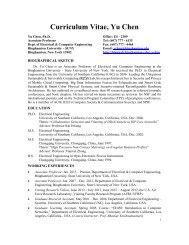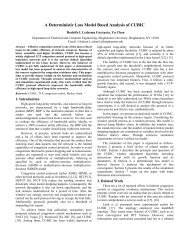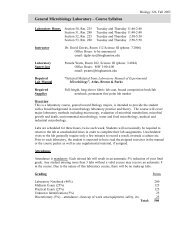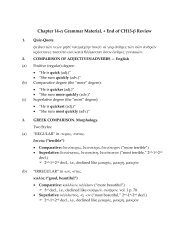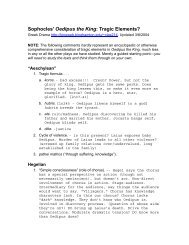Aristotle Poetics - Harvey.binghamton.edu
Aristotle Poetics - Harvey.binghamton.edu
Aristotle Poetics - Harvey.binghamton.edu
Create successful ePaper yourself
Turn your PDF publications into a flip-book with our unique Google optimized e-Paper software.
<strong>Aristotle</strong> <strong>Poetics</strong> 19<br />
(3) A third species is recognition through memory, from a person’s consciousness being<br />
awakened by something seen or heard. Thus in The Cyprioe of Dicaeogenes, the sight of<br />
the picture makes the man burst into tears; and in the “Tale of Alcinous,” by hearing the<br />
harper, Odysseus is reminded of the past and weeps; 81 the recognition of them being the<br />
result.<br />
10<br />
20<br />
(4) A fourth kind is recognition through reasoning; for instance in The Libation Bearers:<br />
“One like me is here; there is no one like me but Orestes; he, therefore, must be here.” Or<br />
that which Polyidus the Sophist suggested for Iphigenia, since it was natural for Orestes<br />
to reflect: “My sister was sacrificed, and I am to be sacrificed like her.” Or that in the Tydeus<br />
of Theodectes: “I came to find a son, and am to die myself.” Or that in The Phinidae:<br />
on seeing the place the women inferred their fate, that they were to die there, since<br />
they had also been exposed there.<br />
(5) There is, too, a composite recognition arising from bad reasoning on the side of the<br />
other party. An instance of it is in Odysseus the False Messenger: he said he should know<br />
the bow—which he had not seen; but to suppose from that that he would know it again<br />
(as though he had once seen it) was bad reasoning. (6) The best of all recognitions, however,<br />
is that arising from the incidents themselves, when the great surprise comes about<br />
through a probable incident, like that in the Oedipus of Sophocles; and also in Iphigenia;<br />
for it was not improbable that she should wish to have a letter taken home. These last are<br />
the only recognitions independent of the artifice of signs and necklaces. Next after them<br />
come recognitions through reasoning.<br />
17<br />
30<br />
40<br />
At the time when he is constructing his plots, and engaged on the diction in which they<br />
are worked out, the poet should remember (1) to put the actual scenes as far as possible<br />
before his eyes. In this way, seeing everything with the vividness of an eye-witness as it<br />
were, he will devise what is appropriate, and be least likely to overlook incongruities.<br />
This is shown by what was censured in Carcinus, the return of Amphiareus from the sanctuary;<br />
it would have passed unnoticed, if it had not been actually seen by the audience;<br />
but on the stage his play failed, the incongruity of the incident offending the spectators.<br />
(2) As far as may be, too, the poet should even act his story with the very gestures of his<br />
characters. Given the same natural qualifications, he who feels the emotions to be described<br />
will be the most convincing; distress and anger, for instance, are portrayed most<br />
truthfully by one who is feeling them at the moment. Hence it is that poetry demands a<br />
man with special gift for it, or else one with a touch of madness in him; the, former can<br />
easily assume the required mood, and the latter may be actually beside himself with emotion.<br />
(3) His story, again, whether already made or of his own making, he should first<br />
simplify and r<strong>edu</strong>ce to a universal form, before proceeding to lengthen it out by the insertion<br />
of episodes. The following will show how the universal element in Iphigenia, for instance,<br />
may be viewed: A certain maiden having been offered in sacrifice, and spirited<br />
away from her sacrificers into another land, where the custom was to sacrifice all strang-<br />
81 In the Odyssey (books 8–9), Odysseus, when he hears the Trojan War (in which<br />
he took part) sung about, weeps and thus discloses his connection to those events.




